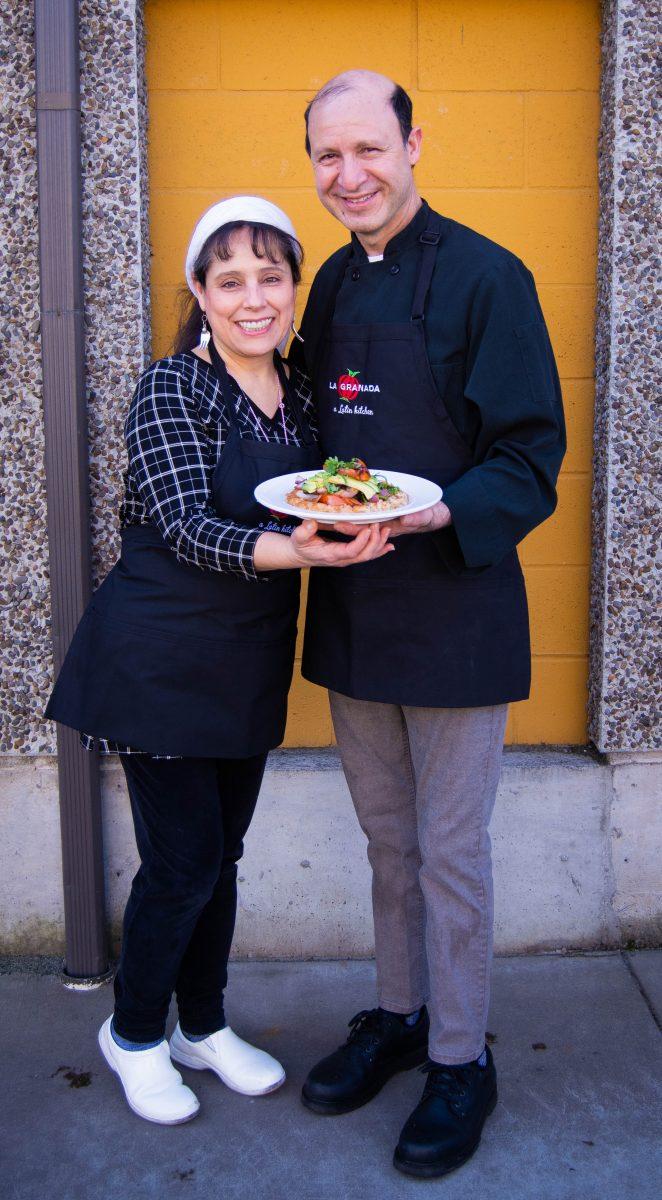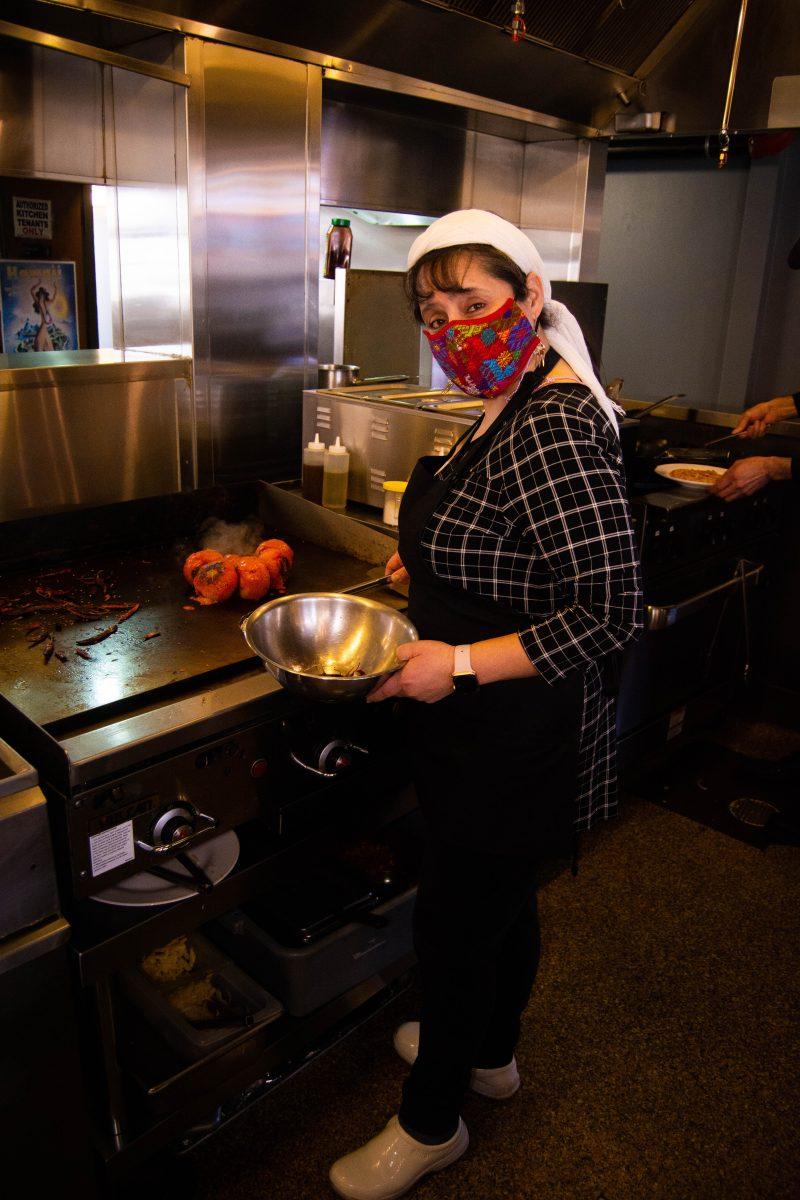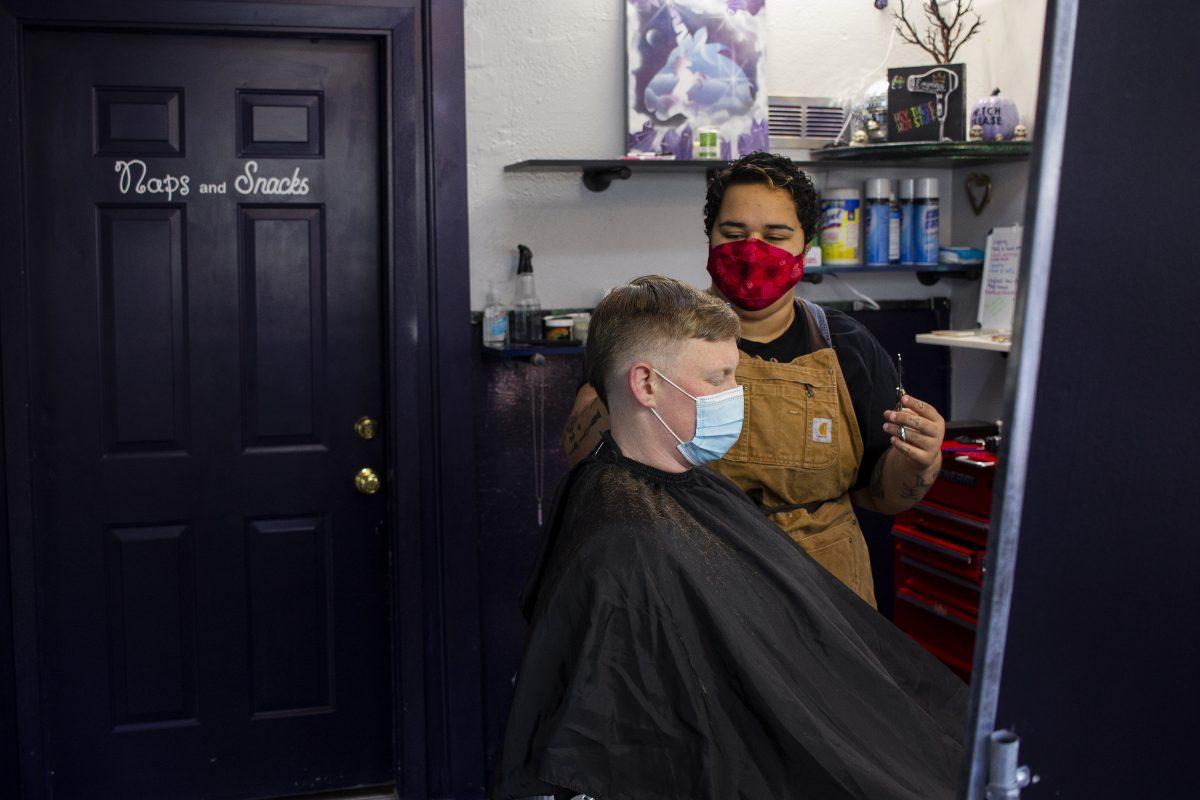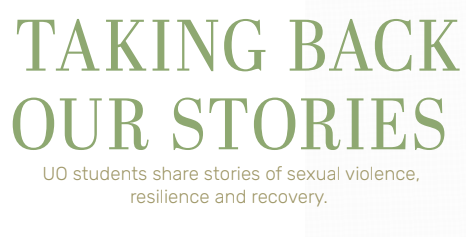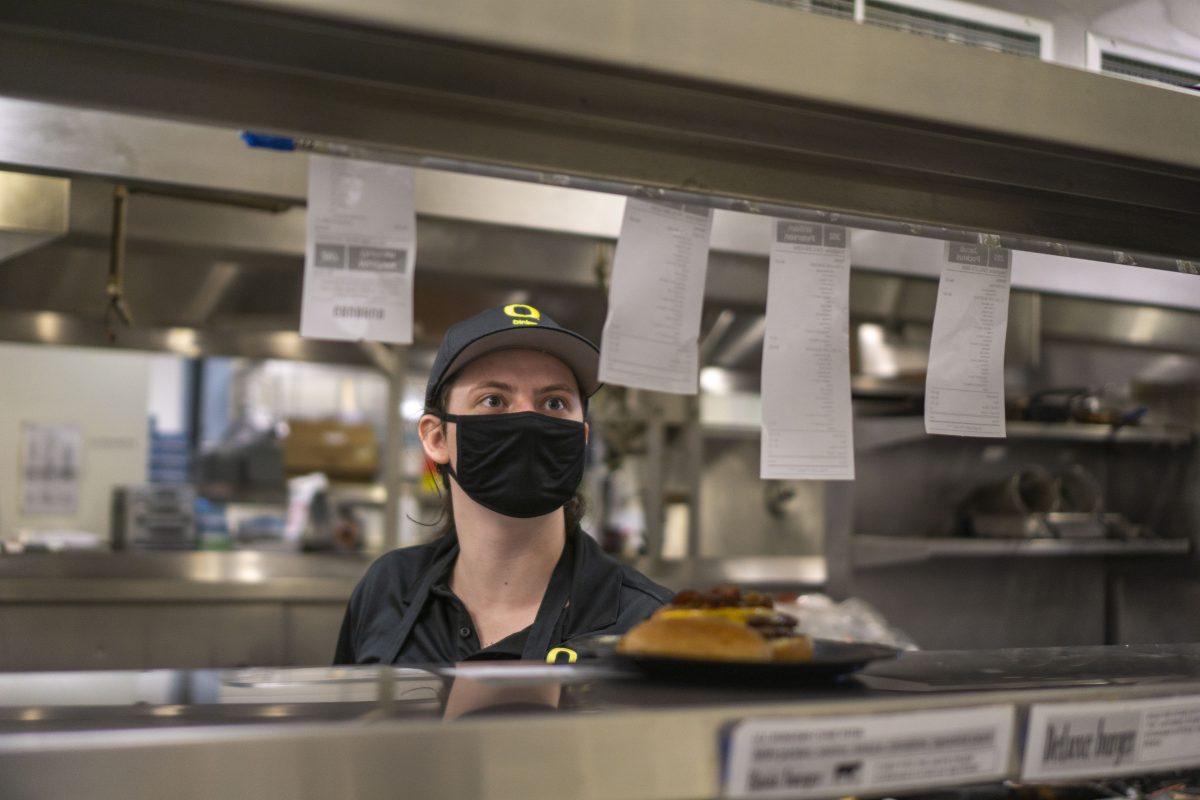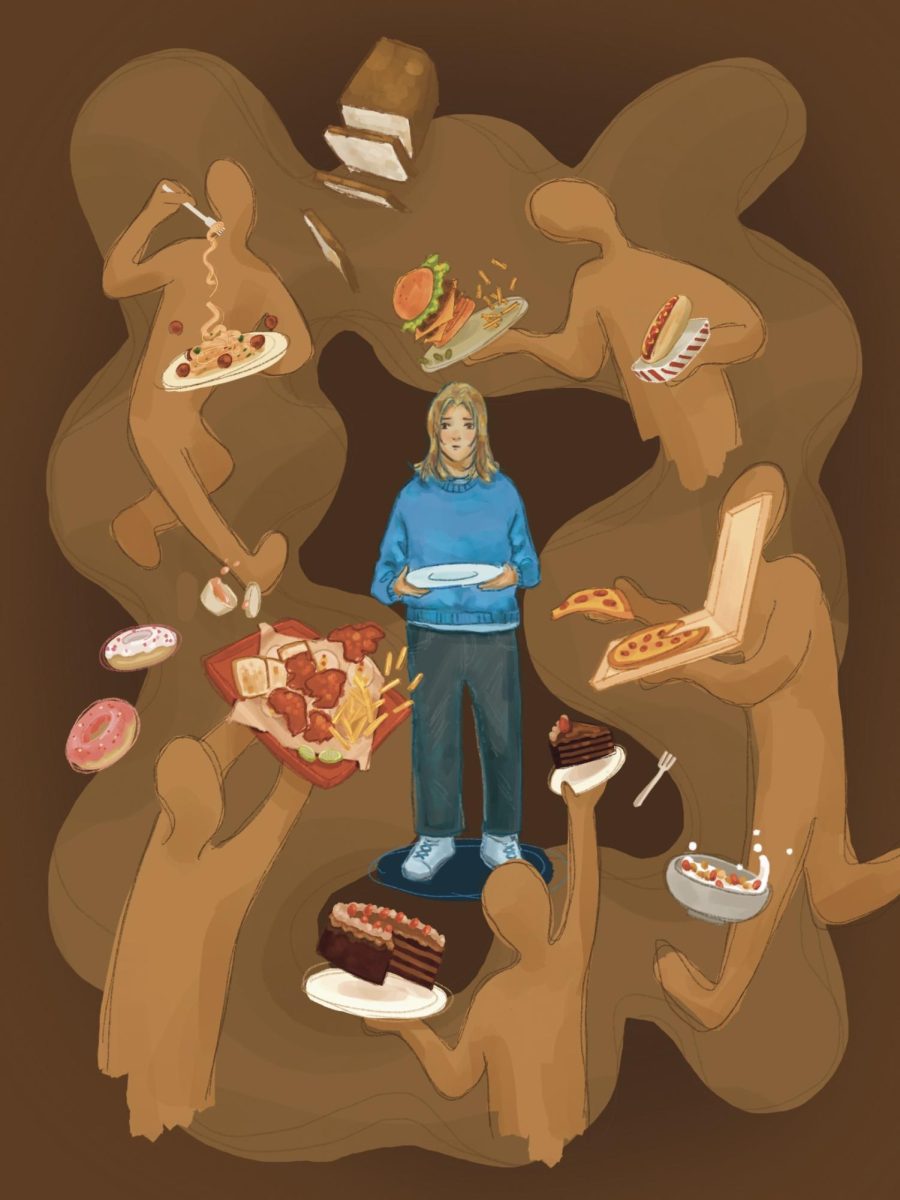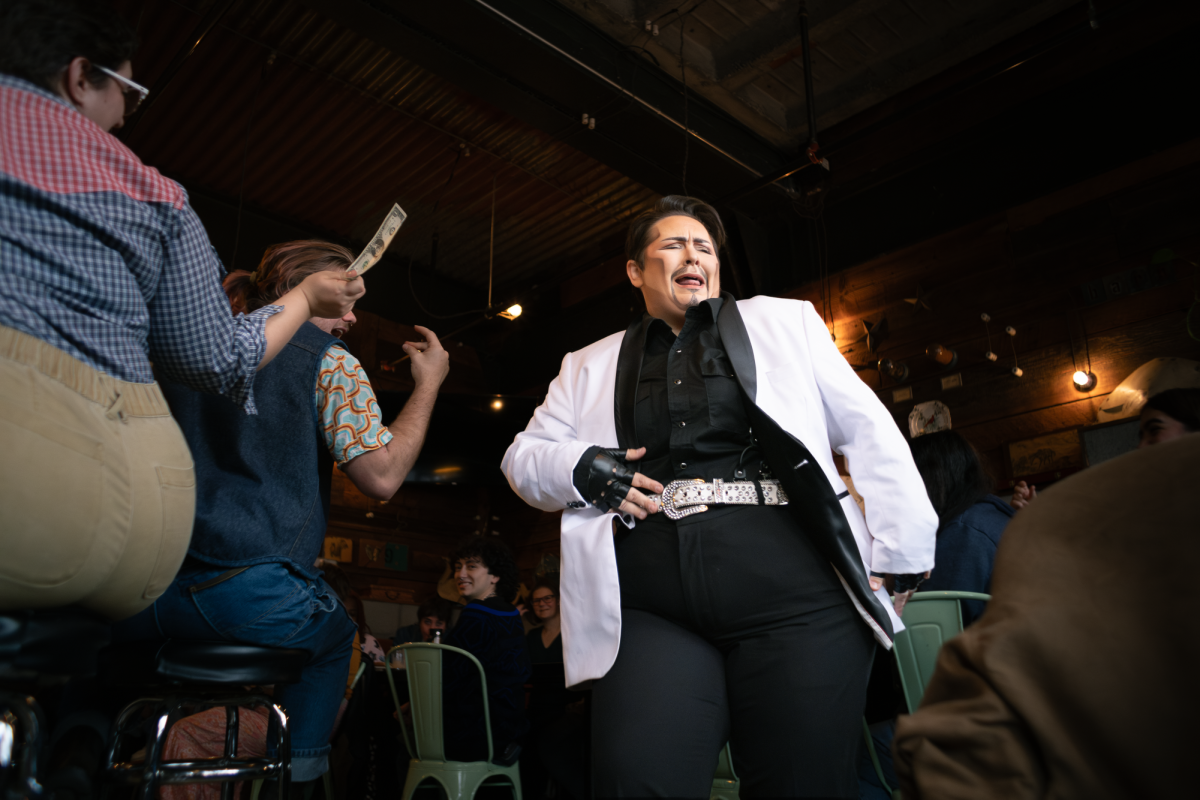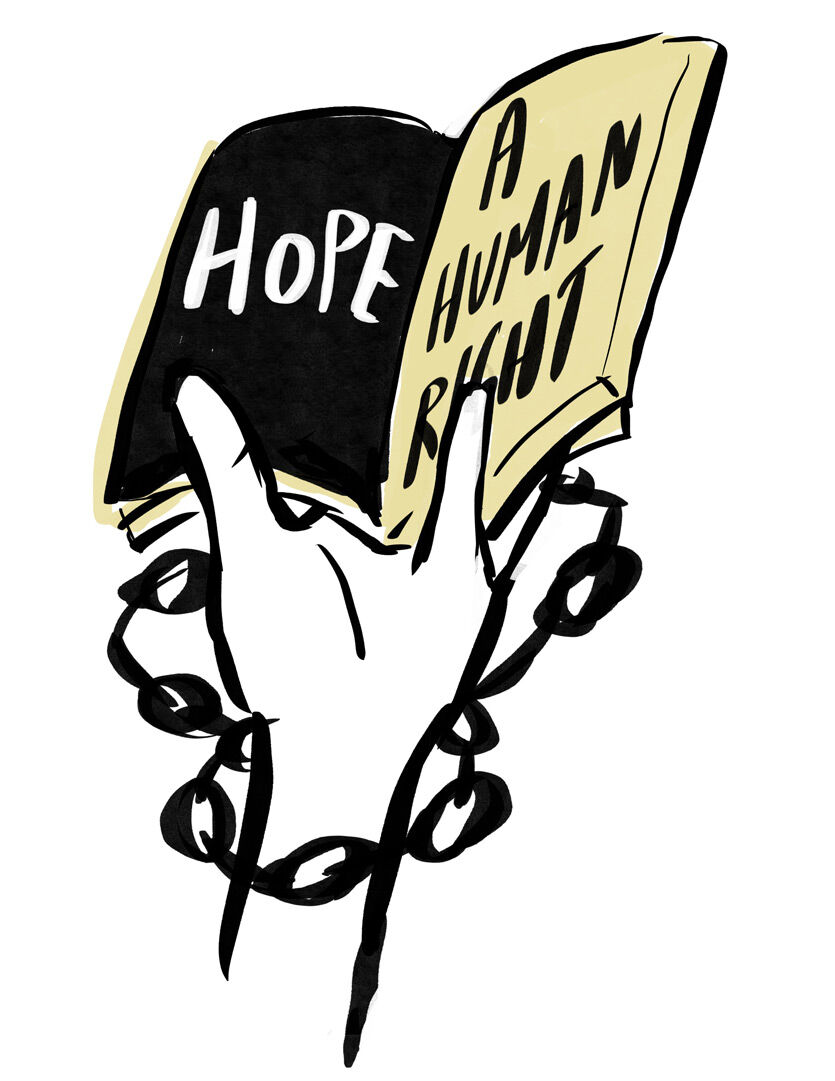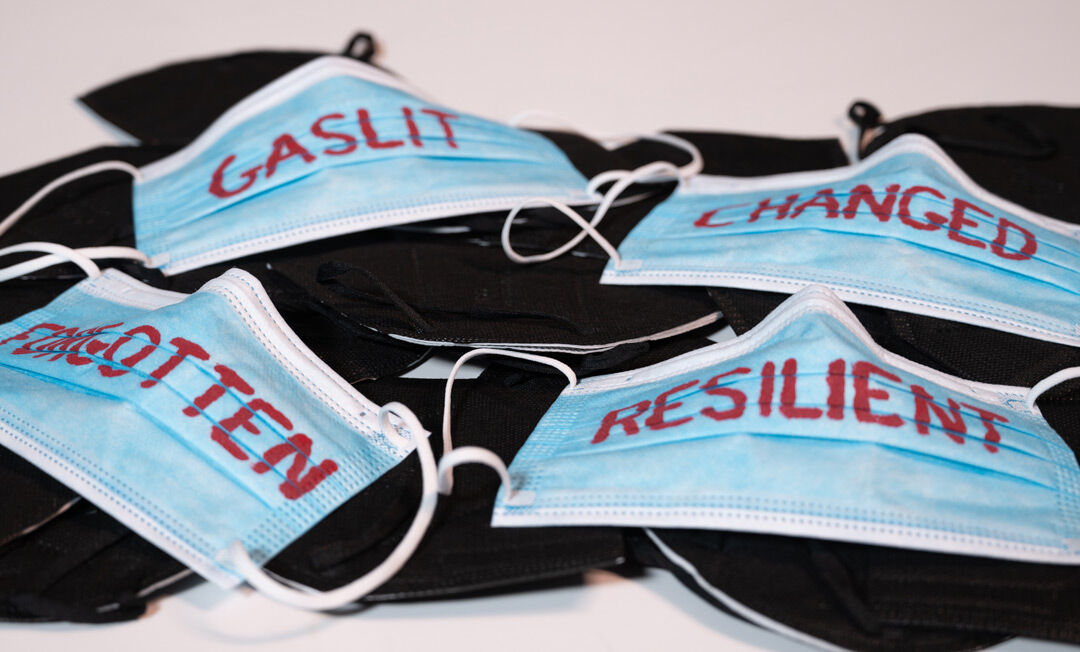In August, Guadalupe Valentin opened Poco Loco, a small Mexican food truck right off Highway 99 in Eugene, with his daughter and nephew after they lost their jobs as cooks due to the coronavirus pandemic. By the time Valentin had opened the business, he didn’t think any funding would be left from the first round of Paycheck Protection Program loans that came out last March.
“We didn’t think we would get a loan, so we didn’t apply at all,” Valentin says.
Valentin says no one told him much about the loan application process. What he did know was that in order to qualify for loan forgiveness, he would have to spend 60 percent of the loan on payroll. But because he only employs his daughter and nephew, spending the majority of a loan on his two employees would be difficult.
Other forms of government assistance also didn’t offer much help. “Lane County offered some masks and gloves and cleaning products, but other than that, there hasn’t been support. We still pay taxes though,” Valentin says, laughing.
As a new business opening up in the middle of a pandemic without money to advertise, Poco Loco has struggled to stay afloat. “Right now, we are basically just surviving. We are having a really tough time,” Valentin says. “We don’t have any help at all.”
But Valentin isn’t the only one. Latinx people own close to 23,000 businesses in Oregon, making up about 3 percent of the state’s businesses, and according to the Federal Reserve Bank of New York, 32 percent of Latinx-owned businesses and 17 percent of white-owned businesses across the country became inactive between February and April 2020. While most business owners have faced several hurdles due to the coronavirus pandemic, Latinx business owners in Oregon have faced extra challenges due to the inaccessibility of PPP loans to Latinx people.
Undocumented business owners are barred altogether from applying for these loans. When Latinx businesses do receive loans, the loans are often small, and it can be hard for them to meet loan forgiveness requirements, according to multiple studies.
Even if Valentin wanted to apply for a PPP loan, the federal government requires that any self-owned business needs to have started operating before Feb. 15, 2020, to be eligible for a loan, so Valentin was ineligible for the PPP program for multiple reasons.
At the beginning of March 2020, the U.S. government required 75 percent of loan funds to be spent on payroll to qualify for loan forgiveness. In late May, this figure was lowered to 60 percent.
It can be difficult for Latinx businesses to reach loan forgiveness requirements because many, like Poco Loco, are family-owned and have very few employees. According to the Center for Responsible Lending, 91 percent of Latin-American businesses are owned by the people who work there and don’t have any other employees.
When PPP loan applications opened in March of last year, many Latinx business owners had issues applying because most banks were only accepting English applications. And for some small business relief funds available through the state of Oregon, loan applications weren’t immediately available in Spanish.
By April 2020, nearly 50 percent of Hispanic businesses were financially distressed or financially at risk compared to 27 percent of white-owned businesses, according to another report by the Federal Reserve Bank of New York.
Even if Valentin started his business before Feb. 15 and was eligible to apply, he may have received little to no funding. An article from Stanford Latino Entrepreneurship Initiative showed that Latinx-owned businesses had their PPP loans approved at half the rate of white-owned businesses, and only 3 percent of Latinx businesses got their full funding request compared to 7 percent of white-owned businesses.
Margarita High, the owner of Lonches To Go, a bright-green food truck off River Road in Eugene, received a small loan from PPP. High and her husband are the only two workers of the truck, and as a result, they were allotted only $1,400.
“When you are self-employed, you don’t get a good loan because you don’t have payroll,” High says. “It was good to get $1,400, but the only thing I was able to pay was my business’ rent and electric bill, and the expenses keep coming every month.”
High’s loan will not be eligible for loan forgiveness because it was spent on her rent and electricity.
High, however, is hopeful. On Feb. 24, 2021, the U.S. Small Business Administration opened a new PPP loan application for sole proprietors and self-employed individuals. Because this loan focuses on the gross income that businesses make per year, generally a larger number than the income they make per month, High feels she may receive a larger loan than before. This would mean more stability for her business.
When it comes to applying for PPP funding, language barriers also stand in the way for much of the Latinx community.
While filling out her first PPP loan application, Evy Hernandez, the owner of La Granada Latin Kitchen in Springfield, thought she knew what was coming. But after finding out that her bank was not offering it, then facing reluctance from other banks to help her and finally having to find a third-party lender, all the emergency funding had been depleted.
So when the next round of funding came out, she tried hard to get it but quickly realized that even though she’s fluent in English, she still couldn’t understand the business jargon in the applications. She says that for non-native English speakers, it’s nearly impossible. She was only able to understand the forms by getting help from some contacts she had at the Springfield Chamber of Commerce.
“That saved us. If it hadn’t been for that, I don’t know what would’ve happened because it was very tough,” Hernandez says.
Alexandra Perez Urbina, the Cambios Program Director for Huerto de la Familia, an organization that works to increase the economic security of Latinx families by providing training in agriculture and business creation, has worked extensively with Hernandez and other Latinx business owners. As a result, Urbina has observed the inaccessibility of emergency relief grants.
“Evy is fully bilingual. She understands English. She has a pretty high degree of education, and she had a hard time understanding the language on these documents,” Urbina says. She says that many of the Latinx entrepreneurs Huerto de la Familia works with come from disadvantaged backgrounds, where the average level of education tends to be between the fifth and eighth grade level.
Another barrier to pandemic relief money in the Latinx community is banking. According to The Center For Responsible Lending, 46 percent of white-owned businesses accessed credit from a bank before the pandemic. For Latinx businesses, this figure was only 32 percent. These disparities meant that when PPP rolled out, the Latinx community was at a disadvantage.
Urbina says that the lack of a relationship between Latinx-owned businesses and banks is due to mistrust. “Historically, they have taken advantage of these groups, so there is a lot of reluctance,” Urbina says.
In April, The Center For Responsible Lending predicted this problem, stating that 91 percent of Latinx-owned businesses “stand close to no chance of receiving a PPP loan through a mainstream bank or credit union.”
When Hernandez finally received help through the Springfield Chamber of Commerce, she says an established relationship with the third-party lender is what made it possible for her to apply.
In addition, when Latinx people try to access these resources, they often don’t have the required documentation needed for assistance or they don’t learn about such funds until it’s too late to apply. Urbina notes that this “first come, first serve” loan model has been incredibly detrimental to minority-owned businesses.
Maria Garcia, the owner of Revolución Coffee House in Portland, has seen the businesses of her co-nationals go down the drain due to them not knowing how to access such funding. She says one woman she knows was forced to sell her business and is now in thousands of dollars of debt and facing deportation.
Other cultural barriers continue to stand in the way of Latinx businesses accessing emergency funding. “There is a lot of misunderstanding, pride and fear with accessing any of these government resources,” Urbina says.
One primary source of fear and misunderstanding is public charge laws. These laws state that if a person wants to apply for citizenship and they have received any public assistance, they are more likely to have their application denied. During the Trump administration, these laws were greatly amped-up, which Urbina says has played a large role in the community’s hesitancy to apply for assistance. “I have tried really hard to explain that these funds aren’t public charge because they are emergency relief,” Urbina says.
On Feb. 2, President Joe Biden issued an executive order that initiated the revocation of the public charge rule with the goal of improving immigration processes for those living in the U.S.
PPP loan problems are not the only issues Latinx business owners are facing. When the pandemic hit, things quickly moved online. According to an Upserve survey, 47 percent of restaurants said their transition to online ordering has been their biggest challenge during the COVID-19 crisis. Because of technical barriers, this rapid transition online has been a particular challenge for the Latinx business community.
Internet use in Hispanic communities in 2019 was 75 percent compared to 82 percent for Caucasians according to the National Telecommunications and Information Administration.
Jovani Ojeda, whose parents own the taco truck Dos Banderas in downtown Eugene, says transitioning to a more digital business model was something his family didn’t even think about. While their business has a Facebook page where they post occasional updates, they haven’t looked into new ways to push their business online. The move to more digital business formats highlights a technical barrier within the Latinx/Hispanic community, a barrier that’s known as the racial-digital divide.
High noticed this technical barrier when she applied for her first PPP loan.
“If you are a small business, and you don’t pay an accountant to help you, you have to do it alone,” she says. “I’m not very good with the internet or doing PDF things, but I’ve learned because you need online information.”
Urbina has directly observed how minority businesses are not as entrenched online as white businesses, saying that, “Oregon likes to do things online, and things are moving online, but people get left behind.”
“We make all of our salsas from scratch. Here I am grilling tomatoes and chilis to make our spicy salsa, nothing is store bought” says Evy Hernandez, owner and chef at La Granada Latin Kitchen.


